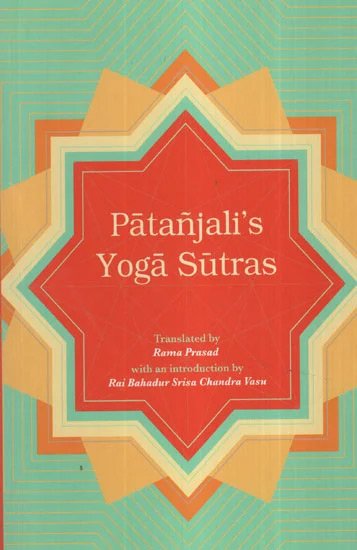Yoga-sutras (with Vyasa and Vachaspati Mishra)
by Rama Prasada | 1924 | 154,800 words | ISBN-10: 9381406863 | ISBN-13: 9789381406861
The Yoga-Sutra 2.47, English translation with Commentaries. The Yoga Sutras are an ancient collection of Sanskrit texts dating from 500 BCE dealing with Yoga and Meditation in four books. It deals with topics such as Samadhi (meditative absorption), Sadhana (Yoga practice), Vibhuti (powers or Siddhis), Kaivaly (isolation) and Moksha (liberation).
Sūtra 2.47
Sanskrit text, Unicode transliteration and English translation of Sūtra 2.47:
प्रयत्नशैथिल्यानन्तसमापत्तिभ्याम् ॥ २.४७ ॥
prayatnaśaithilyānantasamāpattibhyām || 2.47 ||
prayatna—of effort, śaithilya—by slackening, ananta—as in the infinite, samāpattibhyām—and by thought transformation.
47. By-slackening of effort and by thought-transformation as infinite.—98.
The Sankhya-pravachana commentary of Vyasa
[English translation of the 7th century commentary by Vyāsa called the Sāṅkhya-pravacana, Vyāsabhāṣya or Yogabhāṣya]
[Sanskrit text for commentary available]
The sentence is completed by adding the word, ‘is secured.’ Posture becomes perfect when effort to that end ceases, so that there may be no more movement of the body. Or, when the mind is transformed into the infinite, that is, makes the idea of infinity its own, it brings about the perfection of posture.—98.
The Gloss of Vachaspati Mishra
[English translation of the 9th century Tattvavaiśāradī by Vācaspatimiśra]
Having described the nature of posture, he describes the means thereof:—‘By slackening of effort and by thought-transforming as infinite.’ The effort which is directed towards the accomplishment of a certain posture helps to keep the body in a particular
position. It is not the cause of the posture which as an accessory of Yoga is meant to be taught here. If that were its cause, the teaching would be useless, inasmuch as in that case the posture would be achieved by its own operation. Therefore this natural effort of the body does not bring about the posture that is meant to be taught. It is in fact its antagonistic. Further this natural effort being the antecedent of the posture that may at any time be desired, does away with the very object of posture. Therefore, he who practises posture as an observance taught here, should employ an effort which consists in suppressing the natural efforts of the body. Otherwise the posture taught here will not be accomplished. It is for this reason that the slackening of the natural efforts of the body is said to be the means of accomplishing posture.
Or, the mind transformed into the idea of the infinite, the Great Serpent, who upholds the sphere of the earth by means of his very steady thousand heads, brings about steadiness.—47.
